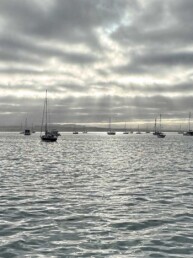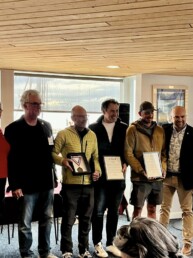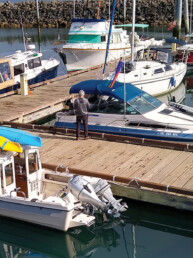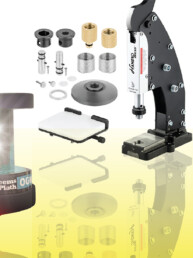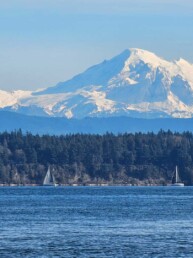Exploring The Rapid Growth Of The PNW J/70 Fleet
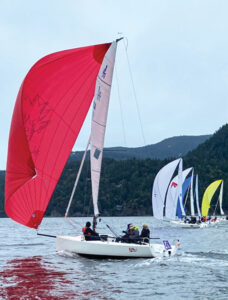
Let’s start with two facts. One, the J/70 — a 22.75-foot sport boat from J/Boats which debuted in 2012 — has quickly grown into one of the world’s most popular one-design keelboats, with more than 1,500 boats sailing worldwide. And two, I’m not selling them.
While fleets exploded in many sailing hotspots around the United States during the 20-teens, the Pacific Northwest stayed eerily quiet. Since 2020, however, the winds have shifted, and the local fleet is growing at an eye-popping rate. First there were six J/70s in the San Juan Islands, then 10 — calling themselves “the J/Pod.” Then, I heard about one or two headed to Hood River. And after years of murmurs with little action, the chips fell just so in Seattle… and the rest is swiftly becoming history. The Pacific Northwest is now home to 34 J/70s actively racing, with many owners sensing the sudden critical mass, and wanting to get in on the ground floor of the local fleet. This is newsworthy on its own merits, but how and why this fleet is growing deserves deeper exploration.
It’s not as if the J/70 was completely off the radar of Pacific Northwest sailors. In fact, this is a good time to ‘out’ myself as someone who poured a tall glass of J/70 Kool-Aid once before. In the year the boat was first built, a friend bought J/70 hull #19 from the initial truckload that came to the area. All four of these boats were sold, and our boat raced regularly; but we mustered a four-boat one-design fleet only once in two seasons of trying. Befuddled at how the fleet wasn’t taking off here as it was in so many other venues, we had some fun and flailed a bit as we tried to learn how to sail the boat well, racing PHRF or straight-up against J/80s. After a couple of seasons, motivation waned and I went off chasing different racing dreams. Other than noting the ginormous fleets sailing at very high levels on the national and international stage, I haven’t thought much about the J/70 in the intervening years.
Still, I perked-up when I heard that a fleet in the islands seemingly materialized out of nowhere, observing with cautious optimism driven by the same interests that drew me in a decade ago. And that’s where this story takes its more interesting turn. One that has me sipping a “slooper size” stein of J/70 Kool-Aid once more, but for notably different reasons.
Enter Ron Rosenberg. It’s not right to say this is all Ron’s doing, but there’s no way to discuss the PNW’s J/70 fleet boom in the last few years without acknowledging that Ron is at the center of it. Indeed, he’s the newly-elected fleet captain, but he’s a whole lot more than that.
Ron Rosenberg
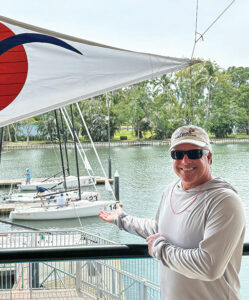
Ron started sailing at 8 or 9 years old when his dad showed up one day with a Coronado 15. He says, “We went for a sail as a family of five, not knowing what we were doing. We capsized, and some strangers helped us get back to shore. And we had a ball together. That changed our lives.” Ron became the “young kid in the gang” at Alamitos Bay Yacht Club, and he tried to keep up with the older kids. He got involved in doublehanded sailing and “won a youth worlds in 1981 in the doublehanded class when Russell Coutts won the singlehanded worlds. That was an eye-opener.” At that event, Dave Perry was assigned by US Sailing to coach his boat, and Ron started to see “how much you could learn from a very good coach in a short amount of time, and how mentors work through life.”
Early in his career, Ron did a number of Olympic campaigns; and won the J/24, Soling, and Etchells worlds with Larry Klein between 1989 and 1991. Ron was an alternate on the 1992 US Olympic Sailing Team, but was elected by his peers to be the team captain in Barcelona. There were several noteworthy PNW sailors on that team — it was the year Brian Ledbetter won his medal in the Finn, and it also included Jonathan and Charlie McKee.
In his role with the Olympic team in Barcelona, Ron developed an appreciation for, “…responsibility, supporting others, and coaching.” He says, “It was a pivotal time, and began my personal study of my passions for sailing, coaching, and helping others to reach their potential.” The US team won medals in 9 out of 10 disciplines that year.
Ron has gone on to become and remain a world-renowned sailing coach, relocating to the Seattle area in 2000; and this led to his present J/70 involvement. A local coaching client named Mike Breivik, who started sailing in 2018, wanted to move from his Beneteau 45 to a smaller race boat and tasked Ron with identifying the path that would allow him to “learn the fastest and become competent and confident at close-quarters one-design racing.” Ron took Mike to a 166-boat Dragon regatta in Europe — the class Ron is personally most familiar with — and Mike was hooked. As they considered Mike’s desires, the J/70 rose to the top of the pile as an ideal training platform.
Why the J/70? In Ron’s words, “We can doublehand it, it has a nice safety factor, and the keel is just heavy enough to keep you out of trouble. It’s a very high performance boat, but also a boat that we can all sail until we’re a hundred years old because you don’t have to be super strong. It’s an easy boat to sail and get around the race course, but it’s a very challenging boat to sail well.” They’re relatively inexpensive to buy used — $20,000-$45,000 typically, with $30,000 being about average, according to Ron — and they should hold their value quite well.
The J/Pod Approach
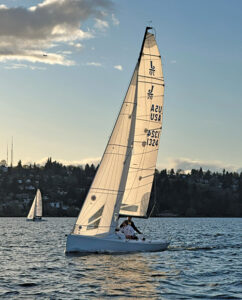
Though Ron and Mike were already moving toward the J/70, the real turning point for our burgeoning local fleet is the grinding-halt that 2020 threw at all of us. In an instant, Ron’s busy travel schedule coaching Olympic athletes and sailors trying to win world championships was completely canceled. He spent the pandemic on Orcas Island, and there was a fateful meeting with some Orcas sailors when Ron asked, “Who wants to go sailing?” Every hand went up. As it was 2020, they were focused on safety and doing something that could thrive shorthanded — sailing together as couples, or parents with kids. The first few J/70s of the “J/Pod” came to West Sound shortly thereafter.
Pouring himself into the Orcas sailing community, Ron applied his coaching skills and guided the fleet towards an intentional model. Together, they worked to understand what we as sailors have missed in the past and what we’ve gotten wrong about fleet building. Ron calls it a “Covid experiment.” The experiment’s central question is this — can Olympic-style coaching and drills provide a great experience for local amateur sailors and help a fleet grow?
To me, the J/Pod model’s principles are intuitive and elegant. The boats sail together as members of the same team, more than as competitors, investing and reinvesting in one another. A group of boats agree on a time and leave the dock together — having multiple boats on the water is crucial — they’re all in radio contact, the coach choreographs everything. Everybody learns together in a fast-paced environment. Ron notes, “We can test things quickly, exploring different ways to tack and jibe and handle the boats together.” This togetherness is a big part of the enjoyment, while also allowing you to make concrete gains, which you can then share with the group. Soon, everybody is getting around the racecourse much more efficiently.
What differentiates this approach from other more well-worn fleet building approaches? To begin with, Ron says, “In my opinion, it’s not about the boat. Many kinds of boats would have been suitable and successful for what we’re doing. It’s about the people, about sharing our passion for sailing and learning with your friends. We’re not know-it-alls, myself included, we’re learn-it-alls.” With this dynamic, it doesn’t feel like work to go out and practice hundreds of jibes, leeward mark roundings, or starts. Learning something at a very high level, in a supportive community environment, with the guidance of someone who is competent in the skills and understands the needs and desires of the individuals and the group… Ron is thrilled that it is showing itself to be effective, welcoming, and inclusive, and importantly, “It is super fun.”
Additionally, there are some cultural fleet norms that try to put a check on things that can take the wind out of a fleet’s figurative sails. One aspect is to recognize that people’s time is precious. To honor that, the J/Pod format tries to get sailors on the water rapidly. All of the Pacific Northwest J/70s live in the water, while many other boats around the country are dry-sailed. This ethos goes so far as to encourage sailors to keep their jibs furled on the headstay, their mains rolled on the boom, and their spinnaker rigged and ready. “Every boat should be sailing 10 minutes after sailors arrive at the dock,” Ron declares enthusiastically.
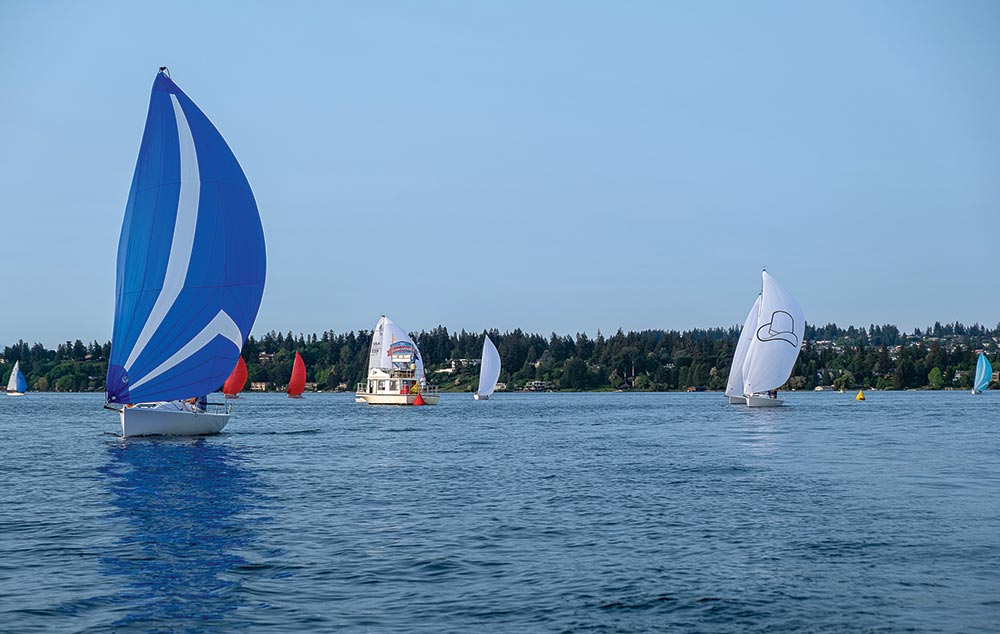
In an effort to keep the arms-race under control, used sails are the J/Pod standard, and Ron will often buy a dozen lightly used sails from top teams at a championship event, bringing them back and passing them along to J/Pod boats.
Ron says J/Pod boats don’t touch. Ever. “There’s a good enough sailor on every boat to ensure that boats aren’t crashing into each other.” Boat damage is expensive, takes boats off the water, and works against good relationships within the fleet. The focus on learning over competition supports this, and the vibe of the boats sailing as members of the same J/Pod team promotes further respect between sailors.
One big reason this concept has been so successful is that Ron helps everybody. Most of the people who benefit from Ron’s coaching and guidance don’t actually pay him as a coach. He helps people find boats to buy, and they often ask if there’s a finder’s fee. There isn’t. He pronounces that he’s motivated “by sheer gratefulness.” He does often get paid, but notably, a single boat or sailor sponsors a coaching session for the whole group. You read that correctly, one person pays, everybody benefits. This is part of Ron’s vision, and he describes the people who just show up and go sailing when a coaching session or race night has been announced as “the glue” — they’re just as valuable as the paying clients.
Growing this “glue” is in everyone’s interest. As such, there is a strong J/Pod expectation that your boat goes sailing, even if for some reason you can’t. Individual sailors find replacement skippers and crew, or Ron utilizes his network to make sure your boat goes out. There are group WhatsApp threads with 100+ members for both the North Sound and Lake Washington — used for general communication and planning, skipper/crew searching, and the exchange of stoke. Sometimes, boat sharing can provide demo-ride opportunities for folks who are newer to sailing. Other times, it’s an opportunity for PNW sailors to get out with their own crew and see what all the fuss (and fun) is about with the J/70.
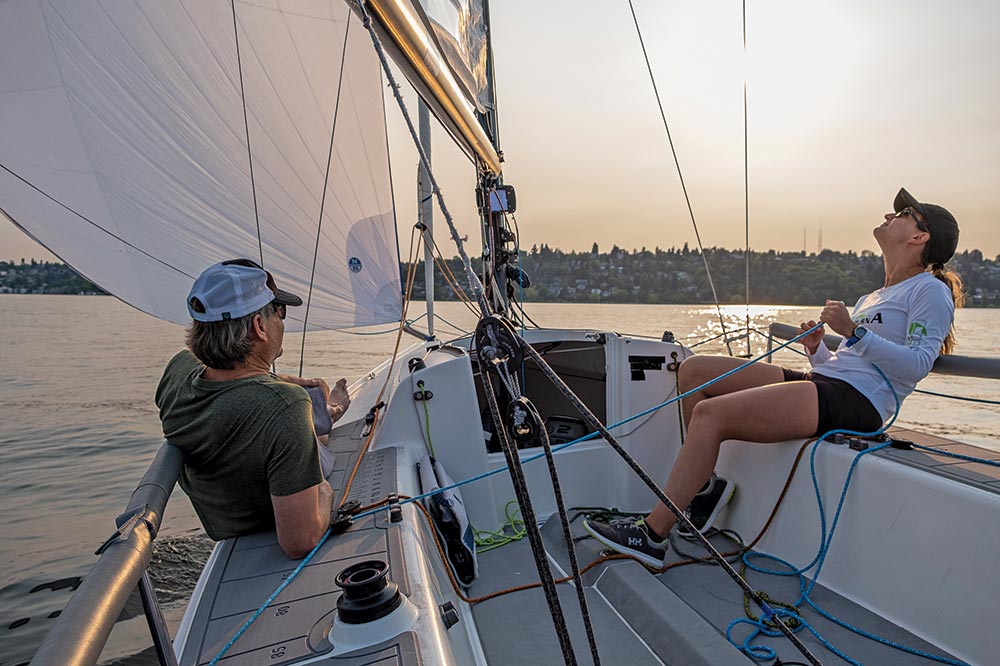
Sailing with the Seattle J/70s
It was in that context that Ron helped me get out for a Wednesday evening race on Lake Washington in May. Mike Breivik’s USA 32 wasn’t going to be used because Ron and Mike were racing J/70s together in Puerto Vallarta. So I got hooked up with my old sailing pal Dan Kaseler, we called a couple friends and went out for a light wind Wednesday out of Leschi.
I’d love to join a night when Ron is coaching, but even on an average race night, the fleet is friendly. We found the boat exactly as Ron indicated — ready to sail immediately. We were offered several different pieces of shared gear from other boats on the dock before we went out, and we were waved through on a close port-crossing during the race. We only got one race in due to the fluky breeze, but it was stirring to see 12 J/70s on the starting line where there had been zero at the same time last year.
Candidly, we were OCS, but we continued to sail. Ron told me he and the J/Pod don’t pay attention to scores on these nights that are mainly about learning and fun. I honestly don’t know if the right J/Pod-move would have been to go back and exonerate ourselves (and sail far behind the fleet for the rest of night) or keep sailing in the fleet mix as we did, knowing our score would reflect our start-line error. I bring this up to say that the J/Pod approach and culture was in my head, even as a visitor… leaving me wondering whether or not we had done right by our fellow J/Pod sailors.
On the water, I was reminded of what I liked about the J/70. It’s ergonomic ease (aside from the presence of the mostly-superfluous winches), the responsive weight-sensitivity, the interesting set-up variables such as inhauling the jib. The night also recalled some old memories that the J/70 is not a very exciting boat in 5 knots, but that’s much more about the wind than the boat.
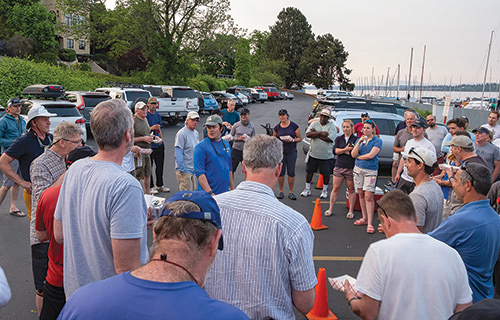
After a night of racing that scratched some of my itches for sailing in a bigger one-design class with a growing fleet, of learning a lot in a still-casual environment with friends — I have to say this whole thing is definitely working. There’s the intangible stuff, like the palpable excitement and positive energy of something new that’s just getting off the ground, as well as the goodwill at the post-racing barbeque. More fascinating is the way likable and inspiring PNW sailors are coalescing around an idea, bringing a range of experience and some evidently different motivations to join together for a common fleet goal. It’s pretty dang cool.
In my opinion, one of the best signs for the Seattle fleet is to see Pacific Northwest stalwarts like Andrew Loe and Keith Wittemore — who have been traveling out of the area to race J/70s at the highest levels — bring their boats here to local waters to go sailing with the J/Pod fleet on Lake Washington. Not only does it speak volumes about the benefits available to all skill and experience levels from Ron and the J/Pod format, but it also validates the staying-power of the local fleet for others who may be thinking about joining the fun.
So, there’s a lot to be excited about. Ron Rosenberg and the J/Pod fleet are onto something unique; and something that could and probably should become more commonplace. The Pacific Northwest now lays claim the nation’s largest J/70 fleet, and it shows no signs of slowing. Try the Kool-Aid, I bet you’ll like it.
Joe Cline is the Managing Editor of 48° North.
Joe Cline
Joe Cline has been the Managing Editor of 48° North since 2014. From his career to his volunteer leadership in the marine industry, from racing sailboats large and small to his discovery of Pacific Northwest cruising —Joe is as sail-smitten as they come. Joe and his wife, Kaylin, have welcomed a couple of beautiful kiddos in the last few years, and he is enjoying fatherhood while still finding time to make a little music and even occasionally go sailing.

